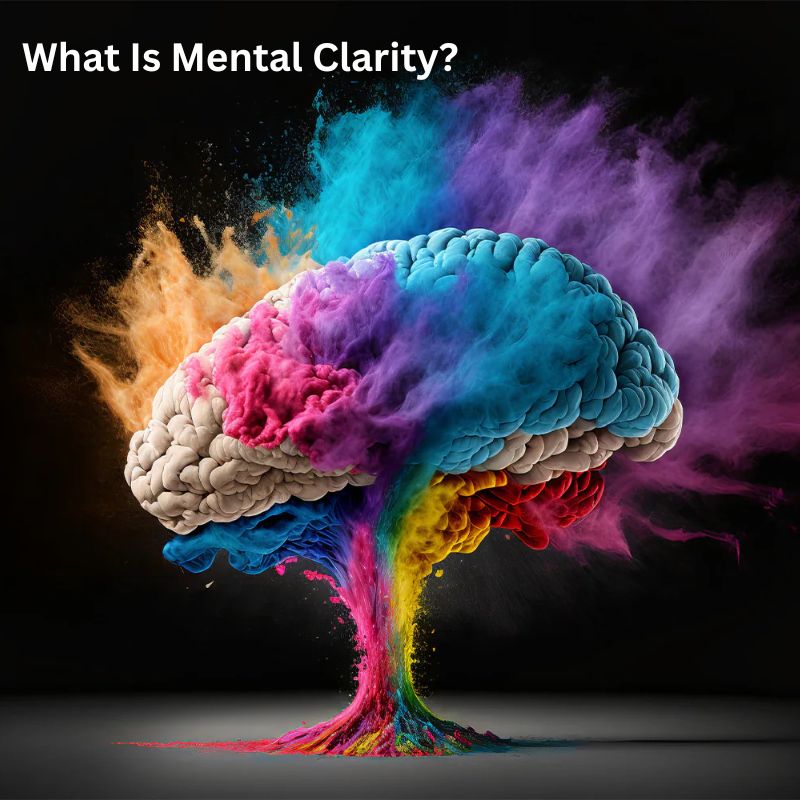In today’s fast-paced world, our minds are often overwhelmed by constant notifications, stress, and distractions. Finding a way to reset and regain mental sharpness is essential—and that’s where meditation comes in. The benefits of meditation for mental clarity are backed by science and embraced by professionals, students, and wellness experts alike.
This article explores how meditation improves focus, reduces mental fog, boosts emotional balance, and promotes a clear, calm mind.
What Is Mental Clarity?

Mental clarity is the ability to think clearly, focus on tasks, and make decisions without feeling mentally foggy or emotionally overwhelmed. A clear mind improves productivity, creativity, and emotional intelligence. Meditation, when practiced regularly, is a proven tool to achieve and maintain this state.
How Meditation Boosts Mental Clarity
Meditation is not just about sitting quietly; it’s a powerful brain-training practice. Let’s explore how it enhances cognitive performance and sharpens the mind.
1. Reduces Mental Clutter and Stress
One of the biggest benefits of meditation for mental clarity is stress reduction. When we’re stressed, our brains are flooded with cortisol, the stress hormone, which can impair memory and focus. Meditation reduces cortisol levels, helping the brain function more efficiently.
According to a study by Harvard Medical School, regular mindfulness practice leads to structural changes in the brain, especially in areas linked to memory, learning, and emotional regulation.
2. Improves Focus and Attention
Meditation strengthens the brain’s ability to concentrate. Techniques like focused attention meditation train you to return your awareness to the present moment. This builds your mental muscle and helps you avoid distractions in everyday life.
A research article published in Psychological Science found that people who meditated for just two weeks showed significant improvements in attention and working memory.
3. Enhances Memory and Cognitive Function
Practicing meditation increases grey matter density in the hippocampus, the part of the brain responsible for memory. Over time, this can lead to better recall, faster processing, and improved learning ability.
A great example is mindfulness meditation, which teaches the brain to observe thoughts without judgment, allowing more space for clear thinking and sound decision-making.
4. Encourages Emotional Balance
Mental clarity is not only about logic and concentration; it’s also about managing emotions. Meditation helps regulate mood by increasing activity in the prefrontal cortex and reducing activity in the amygdala—the brain’s fear and stress center.
By balancing emotional responses, meditation allows you to approach problems with a calm and focused mind.
5. Promotes Mindfulness and Present-Moment Awareness
Living in the present is one of the foundations of clarity. When your thoughts are not clouded by regrets about the past or worries about the future, your mind can function at its best. This is a core benefit of meditation for mental clarity.
Practices such as mindfulness meditation or body scan techniques cultivate awareness of the present moment, which sharpens perception and mental acuity.
Best Types of Meditation for Mental Clarity
There are several meditation styles, but not all serve the same purpose. Here are a few that are particularly effective for gaining mental clarity:
- Mindfulness Meditation: Focuses on breath and bodily sensations.
- Focused Attention Meditation: Involves concentrating on a single object, thought, or sound.
- Transcendental Meditation: Uses mantras to help clear the mind.
- Walking Meditation: Combines movement with mindful awareness, ideal for those who find sitting still challenging.
Try free guided meditations on platforms like Insight Timer or Headspace.
Creating a Meditation Habit
To experience the benefits of meditation for mental clarity, consistency is key. You don’t need to meditate for hours; even 10 minutes a day can make a difference.
Tips to Get Started:
- Choose a quiet, comfortable space.
- Sit upright but relaxed.
- Focus on your breath, a mantra, or body sensations.
- If your mind wanders (which it will), gently bring it back.
Over time, you’ll find it easier to concentrate and feel more mentally refreshed.
FAQs
Q1: How long does it take to experience the benefits of meditation for mental clarity?
Many people report feeling calmer after just one session. However, noticeable improvements in focus and memory often occur after a few weeks of regular practice.
Q2: Can meditation really improve my memory?
Yes, studies show that meditation increases grey matter in areas linked to memory. It also enhances the brain’s processing speed and focus.
Q3: Do I need to meditate for an hour every day?
No. Even 10–15 minutes a day can deliver real benefits. The key is consistency, not duration.
Q4: Is meditation suitable for everyone?
Yes, meditation is a safe practice suitable for all age groups and fitness levels. If you have a mental health condition, consult your therapist for personalized advice.
Q5: What’s the best time of day to meditate for mental clarity?
Morning meditation can set a focused tone for the day. However, meditating in the evening can also help clear mental clutter from your day.
Final Thoughts
The benefits of meditation for mental clarity are extensive, from enhancing focus and reducing stress to improving emotional balance and memory. In a world full of noise and distraction, meditation offers a path to stillness, clarity, and sharper thinking.
Whether you’re a busy professional, a student, or simply someone looking for peace of mind, meditation can be a game-changer. And the best part? You don’t need any special tools or environments—just a few minutes a day and a willingness to be present.
For more wellness tips, mindfulness guides, and tools to support your mental well-being, explore trusted resources like MindScribes and Headspace.

